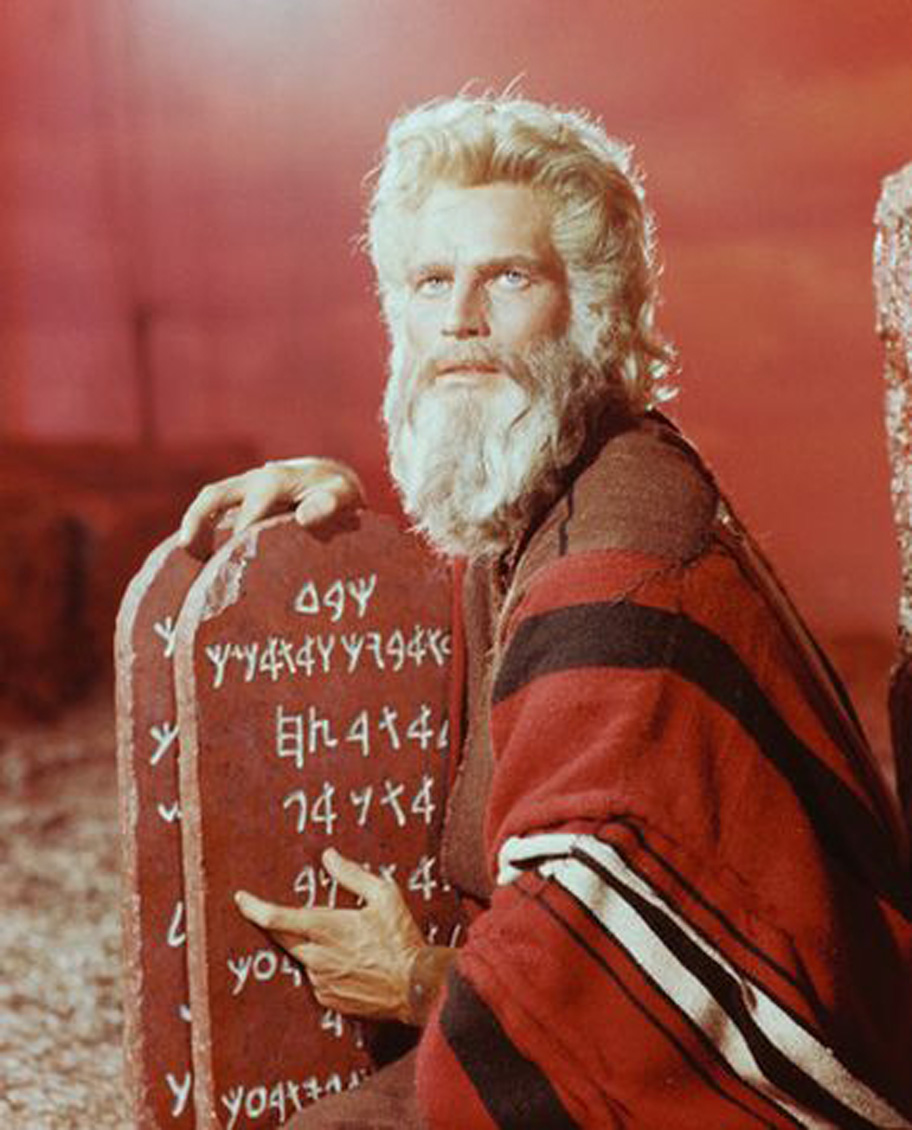So, a post on The Ten Commandments. How this came to mind today or why, I have no idea.

Most people who have any sense of the Ten hear them as a hectoring and scolding list of repressive "thou shalt not's", as the telling phrase goes. Reading them --there are two slightly different versions-- in their original settings in the Bible is interesting. The Catholic catechism version I learned omits the prohibition about graven images and splits the prohibition of coveting into two separate texts: one sexual, one general. The Protestant catechism version gave full voice to the anti-idol text.
Anyway, here's a summary:
1. I am the Lord thy God who brought thee out of the house of bondage:
you shall have no alien gods before Me.
2. Do not make idols and worship them.
3. Do not take the Name of the Lord thy God in vain.
4. Keep the Sabbath day.
5. Honor your father and mother.
6. Do not murder.
7. Do not steal.
8. Do not commit adultery.
9. Do not commit perjury.
10. Do not covet what belongs to your neighbor.
I hear them in a kind of Basic Constitutional framework.
The first four come down to this: A personal God who is the advocate of your life and liberty is the transcendant source of truth and order. So do not corrupt that Center with competing forms of divinity, nor reduce it to an object nor trivialize it. And build into the regular rhythm of life a full sacred day.
The next five outline human society: Marriage and the parent-child bond are to be protected. Life and property are to be respected. Truthfulness in discourse allows trust between people and in their institutions.
The final one names covetousness, inordinate desire, and specifically as envious desire for what belongs to others, as a root drive which must be contained.
One of the techniques I used to use in teaching was imaginary reversal. I found that it helped people appreciate texts that they resisted approaching except in a reactive way. For the Ten Commmandments, as I have interpreted them, try to imagine a societal order shaped by the violation of each and every one of them:
No personal center of value to protect life and liberty, with the result that "sacred" things are both objectified and trivialized and there is no marker of anything sacred in your life's actual calendar. Every day is really just like another.
Men and women, parents and children, distrust and mistreat each other because marriage and family have broken down and are not really valued or protected. Your home is always under threat and you have to watch everything you own, lest you be robbed of it. And people trust neither one another nor their institutions because truth is so hard to come by and speech is really an instrument of power and struggle, nothing more.
Envy is rampant, so no one is happy with what they have, and anyone who has anything has to wonder suspiciously who is out to take it away from them.
Sound familiar? When I lived back East and it was the 70's, I simply used to describe life under the Ten Anti-Commandments as "The South Bronx".
Synchronistically, I have earlier today wandered into an article at The Intellectual Conservative where a long and rather hyper article about principles in politics eventually finds the principles in the Ten Commandments as grounds for a non-theocratic libertarian social contract!
And while I am feeling fragmentary, I ran across Kay Hymowitz' 2005 piece on the crisis in black America as being centered on the collapse of the family and its replacement by single mothers and absentee fathers. Her 2008 update remains pessimistic and supports the radical notion that very much of black America's difficulties stem from this pattern of behavior, not the increasingly hard to find, white racist.
In popular culture and drama prior to the late 60's, a girl pregnant and unmarried was a huge problem. The shame and opprobrium she carried came to seem cruel and intolerant, so now an "unwed mother" has become that cozy-sounding plucky victim-survivor icon, the "single mom". As I have noted before, if you are Murphy Brown, maybe, but Kenisha from Oakland is a different story.
An unpleasant thought occurs: the relatively few individual mothers, and their children, did suffer social stigma back in the bad old days. But the subsequent misery, poverty, emotional and social damage, crime and imprisonment and poisoning of gender relations that the caring and enlightened view has brought about is much worse and for far more many people. Only thirty years from Town Without Pity to New Jack City. Maybe the old attitude reflected ancestral wisdom, which is often unkind, but often true.
_______________________________

No comments:
Post a Comment